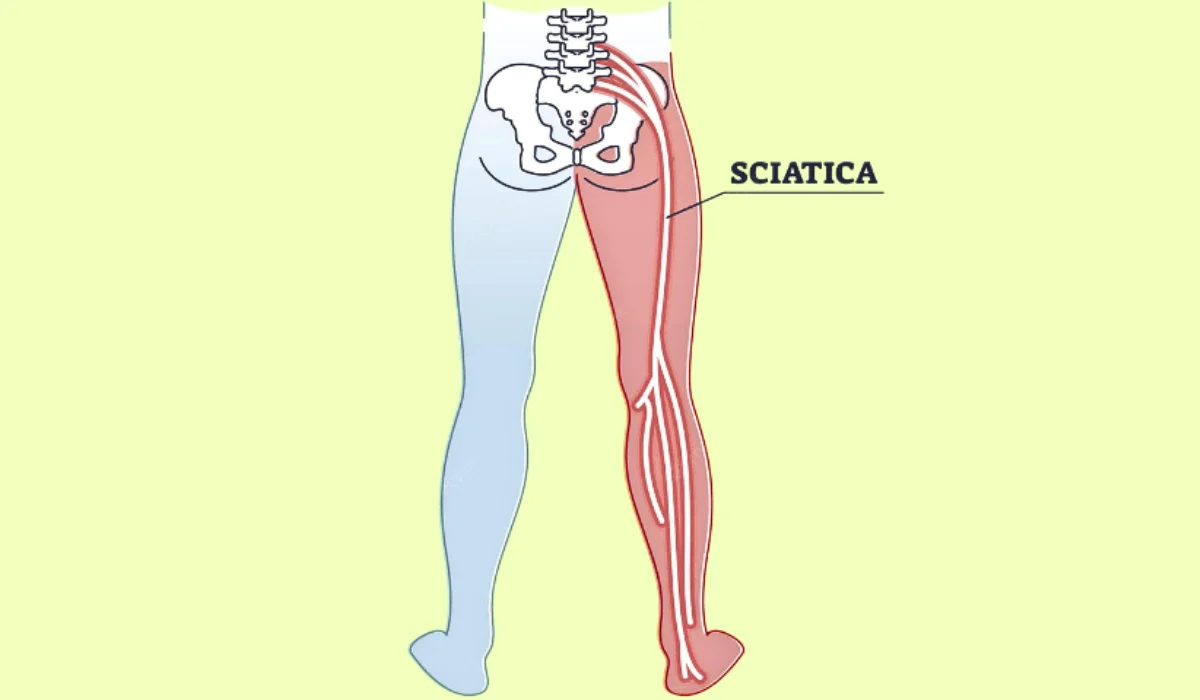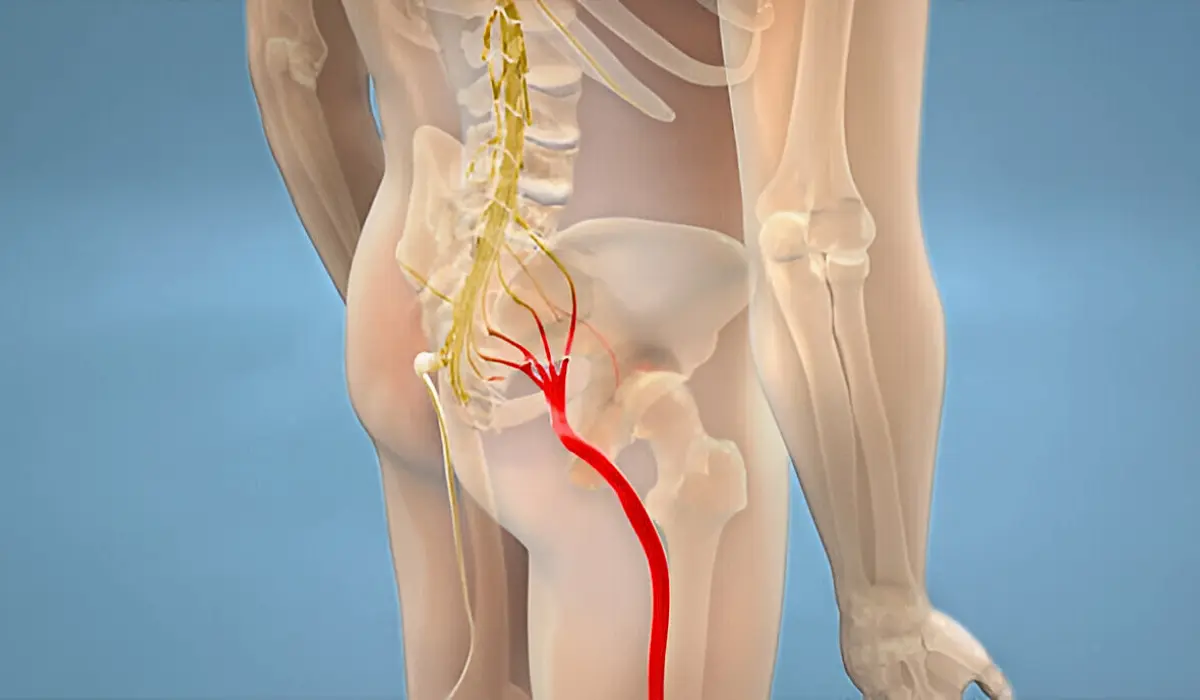Sciatica is a nerve condition that causes irritation, inflammation, and pain along the path of the sciatic nerve. The sciatic nerve runs down your lower back, hips, buttocks, and legs. It is not a serious condition but it can cause mild to severe pain which can be a discomfort to do daily activities.
People with the condition can get better without any treatments, however, severe cases may require surgery. Here is an essay that explores all the aspects of sciatica to help you provide an overview of the causes, symptoms, risk factors, and stages.
What Is Sciatica? An Overview
Sciatica is a nerve pain caused by an injury or irritation to the sciatic nerve. It is the longest nerve in your body and it can control muscles in the lower leg. Sciatica can cause a feeling of numbness in the back or the butt.

Typically sciatica is not a disease but a symptom of another underlying condition. Sometimes the real cause includes a herniated disk, bone spur, or spinal stenosis. These conditions can compress or irritate the sciatic nerve and lead to sciatica. It is a bundle of nerves that comes from five nerve roots of the spinal code. You have two of these nerves on each side of your body.
Symptoms Of Sciatica
As mentioned before, sciatica is a symptom of a condition or disorder. However, it can cause several symptoms, some of which include
- Sharp shooting pain that leads to difficulty in walking or standing.
- Numbness or tingling sensation on your lower body.
- The feeling of weakness while moving your legs.
- Burning sensation along the sciatic nerve pathways.
- Urinary or fecal incontinence usually happens in the last stages of sciatica.
Many of these symptoms may not be a reason for sciatica. If you have any of these symptoms or they get worse consult your healthcare provider for proper diagnosis.
Risk Factors Of Sciatica
You may get sciatica due to any condition that affects the sciatic nerve. There are a myriad of reasons that can lead to this. Early diagnosis and proper treatment can completely cure the condition. Some of the common risk factors of sciatica include:
- Herniated disk – It is an injury to the spine that can heal on its own.
- Degenerative disk disease – It is a condition that can lead to the damaging of cushioning in your spine.
- Spinal stenosis – You may get spinal stenosis when the space around the spinal code becomes too narrow.
- Osteoarthritis – It is a type of arthritis, that leads to the wear and tear of cartilage in your joints.
Pregnancy, trauma, cysts, tumors, and other growths can also lead to the development of sciatica.
Last Stages Of Sciatica
Based on the development of the symptoms, sciatica is divided into three stages.
1. Acute Stage
This stage is marked by the onset of pain. The acute stage is the first stage and has a duration of 0 to 6 weeks. The pain felt during the first stage can be mild to severe. Along with pain, a person may experience other symptoms such as numbness, tingling sensation, and muscle weakness.
2. Subacute stage
It comes before the last stages of sciatica and probably lasts for 6 to 12 weeks. During this stage, a person will experience mild to severe pain that can limit daily activities. Physical therapy, medication, and injections will help to reduce the inflammation.
3. Chronic Stage
The condition becomes chronic after 12 weeks. In the last stages of sciatica, a person may face symptoms such as severe pain, inflammation, difficulty with walking, and nerve damage. Lifestyle modifications, physical therapy, medications, and surgical intervention will help a person find relief during the Final stages of sciatica.
Treatment Options
The treatment of the condition depends on the cause and severity. Depending on these factors, a doctor may recommend pain relievers to reduce inflammation. Some over-the-counter medications can also help to address mild inflammation. Stretching and strengthening exercises will promote the removal of pressure from the sciatic nerve.
Applying heat or cold to the affected area can reduce inflammation and alleviate pain. Some doctors may recommend steroid injections to help you get rid of pain. When it comes to severe cases surgical invasion is the last option. If other treatments don’t provide the needed relief, surgery can remove the pressure on the nerve.
Read More: What Is Infraspinatus Pain? Causes, Symptoms, And Remedies
Conclusion
Sciatica is an extremely common condition that can cause pain and inflammation in the sciatic nerve. For some people living with the condition can be challenging. Maintaining a healthy weight, practicing good posture, use of proper lifting techniques, and regular exercises can reduce the risk of the condition.
Proper medication, physical therapy, injections, and surgery will provide relief from the pain and numbness associated with sciatica. You may need to consult a medical professional to diagnose the stage of your sciatica.







